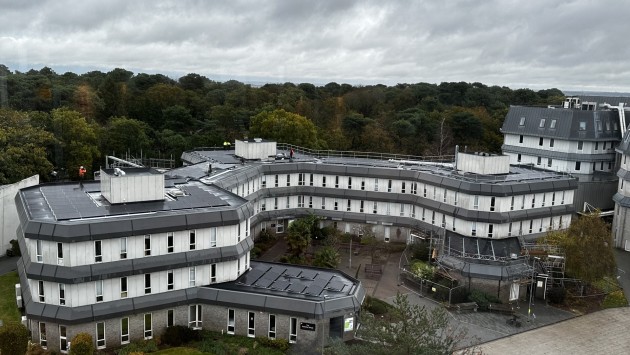The target of our Climate and Ecological Crisis Action Plan (CECAP) is to achieve net zero emissions across all activities, known as scopes 1, 2 and 3, by 2030/31.
We will reduce our greenhouse gas emissions as rapidly as possible, with particular focus on energy consumption, transport and capital development, and invest in high-quality carbon offsets, where necessary, to achieve the science-based net zero target.
Reducing BU’s emissions from energy and water is a key part of meeting our net zero target. BU has been focused on continuously improving our energy and water management on campus and reducing our emissions since our first Carbon Management Plan in 2010. We have made great strides in this, reducing our GHG emissions by 45% in 2018/19 compared to the 2005/06 baseline, two years earlier than our target, and now raising our ambition further within the CECAP. You can read about our progress since 2018 in our latest CECAP Annual Report on the side of this page.
Our integrated Environmental and Energy Management system is certified to ISO50001:2018 and we are ranked 11th in the country for our contribution to SDG13: Climate Action according to the THE Impact Rankings 2024.
Renewable energy
Renewable heat
Water management
Our buildings
Moving forward to net zero
See how much energy our solar panels are generating
We are Energy Management Team of the Year 2023!
Student accommodation
Sustainable IT
BU take a sustainable approach to managing our IT services. This relates to both equipment used by our students and staff on campus and equipment used behind the scenes in data centres and comms rooms to enable the systems we rely on to work. Our sustainability considerations cover the decisions made at point of purchase to how we use the equipment and how we dispose of it. Everyone at BU has a responsibility to follow our Sustainable IT Policy.
For end users, the key actions to remember are:
- Turn off peripheral equipment such as monitors and scanners when not in use (all BU equipment including desktop PCs automatically enters power saving mode to reduce energy consumption when not in use),
- Minimise the amount of printing you carry out and use our default printing standards to save paper and energy (double-sided printing, black and white),
- Use video conferencing and other BU-provided collaboration technology to reduce the amount of business travel where appropriate and achievable,
- Use the BU softphone on your BU mobile device over a physical IP Phone, where possible.
We have a Sustainable IT Group who meet bi-monthly to oversee our sustainable approach to IT, which is based on the Capgemini roadmap for sustainable IT implementation. Within this, we focus on three areas, detailed below.
Assess: set the foundation for sustainable IT initiatives
Governance: create effective governance for sustainable IT initiatives
Implement: operationalise sustainable IT initiatives
Get in touch
Snapshots
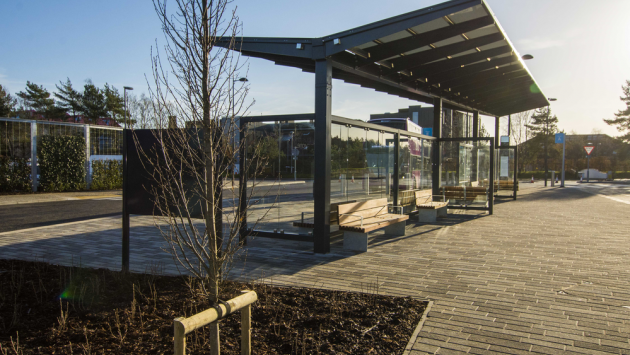
Bus hub solar panels
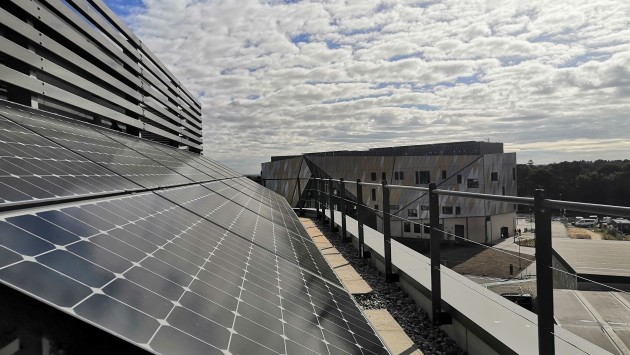
Our Poole Gateway Building on Talbot Campus, viewed here from the solar panels on the top of the Fusion Building, has the BREEAM 'excellent' sustainability standard
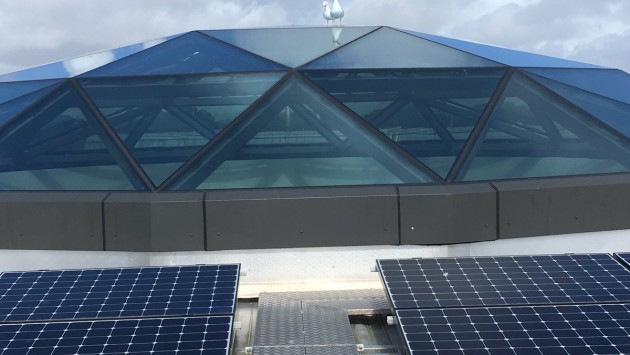
Solar panels
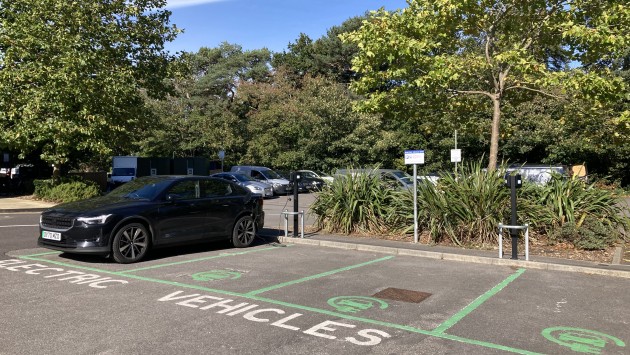
EV charging stations BU
